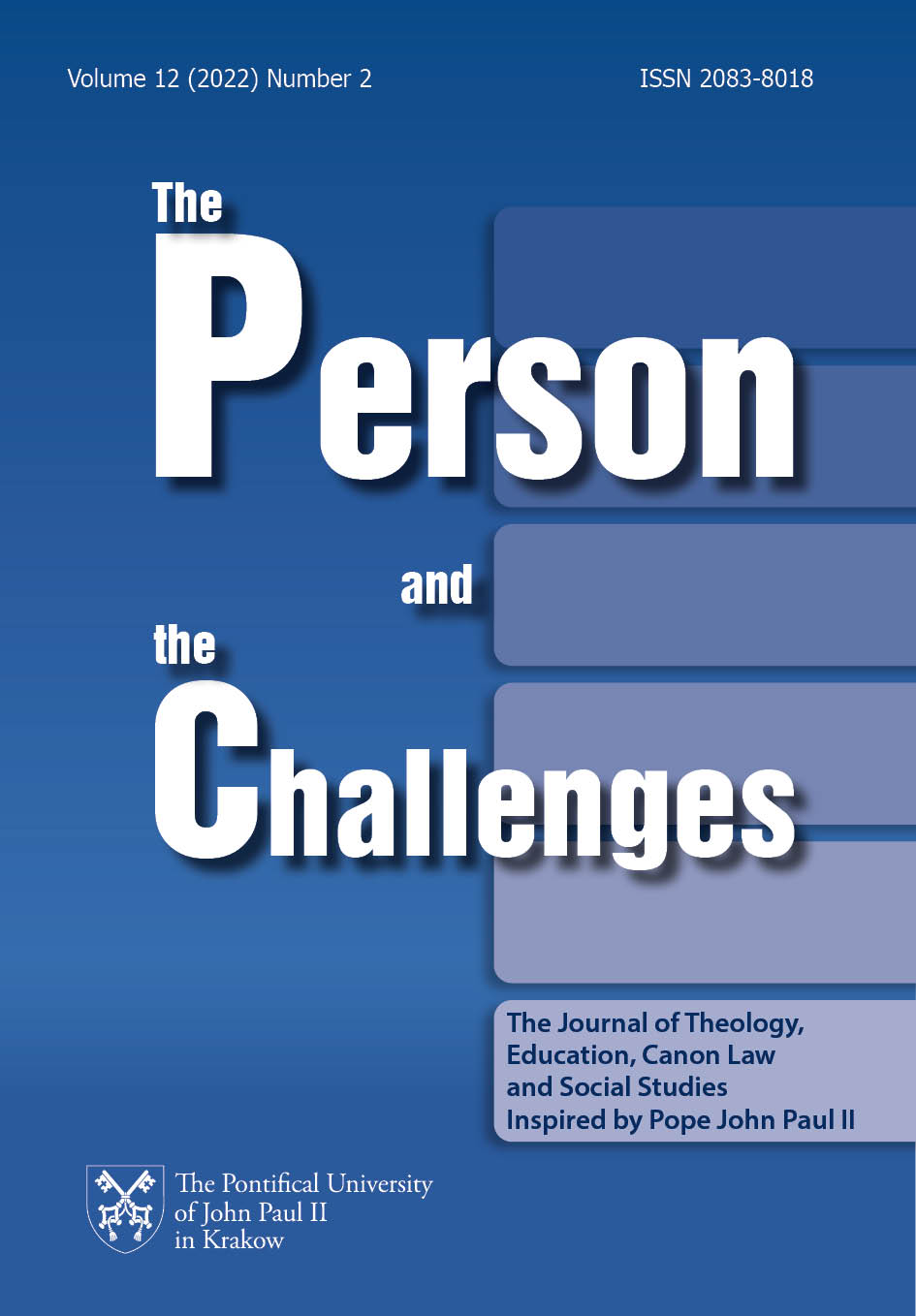Personalistic View of John Paul II on the Humanizing Function of Art in the Context of Dialogue between the Church and Artists
Personalistic View of John Paul II on the Humanizing Function of Art in the Context of Dialogue between the Church and Artists
Author(s): Richard GorbanSubject(s): History of Church(es), Philosophy of Religion
Published by: Wydawnictwo Naukowe Uniwersytetu Papieskiego Jana Pawła II w Krakowie
Keywords: dialogue; humanis; person; depersonalization; dehumanization; philosophy of art;
Summary/Abstract: This article presents the way John Paul II, the head of the Vatican at the beginning of the third millennium, theologically and philosophically substantiates and establishes the principles of a new humanism through the dialogue between the Church and art as the most personalized sphere of human activity. The conceptual essence of the key idea of the humanizing function of art, in the personalistic philosophy of art of John Paul II is revealed from the methodological standpoint of religious studies. It determines the particular nature and tasks of the renewed dialogue between the Church and artists, aimed to overcome the processes of depersonalization and dehumanization of culture, caused by atheistic humanism and growing increasingly during the 20th century. The author ponders on The Letter of Pope John Paul II to Artists and Towards a Pastoral Approach to Culture, two papal documents. Their appearance on the eve of the 2000th anniversary of Christianity became symbolic. These documents draw attention because, firstly, although the idea of a dialogue between the Church and artists as a way of embodying spiritual values of a new humanism in the theological and philosophical discourse of John Paul II had been formed over several decades, it found its conceptual solution precisely in these two papal documents. Secondly, it is in these two documents that the essence of the cultural policy of the 264th Pope is consistently set forth, meant to overcome the consequences of atheistic humanism and create a new humanism, and thus to overcome the civilizational anthropological crisis and develop a new ideological paradigm of the third millennium.
- Issue Year: 12/2022
- Issue No: 2
- Page Range: 53-67
- Page Count: 15
- Language: English

